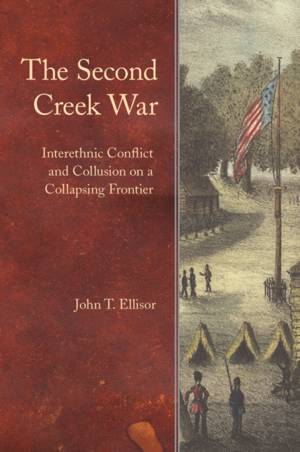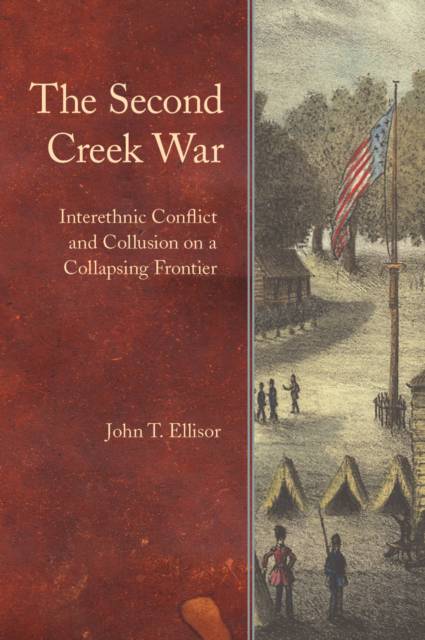
Je cadeautjes zeker op tijd in huis hebben voor de feestdagen? Kom langs in onze winkels en vind het perfecte geschenk!
- Afhalen na 1 uur in een winkel met voorraad
- Gratis thuislevering in België vanaf € 30
- Ruim aanbod met 7 miljoen producten
Je cadeautjes zeker op tijd in huis hebben voor de feestdagen? Kom langs in onze winkels en vind het perfecte geschenk!
- Afhalen na 1 uur in een winkel met voorraad
- Gratis thuislevering in België vanaf € 30
- Ruim aanbod met 7 miljoen producten
Zoeken
€ 76,45
+ 152 punten
Uitvoering
Omschrijving
Historians have traditionally viewed the "Creek War of 1836" as a minor police action centered on rounding up the Creek Indians for removal to Indian Territory. Using extensive archival research, John T. Ellisor demonstrates that, in fact, the Second Creek War was neither brief nor small. Indeed, armed conflict continued long after "peace" was declared and the majority of Creeks had been sent west. Ellisor's study also broadly illuminates southern society just prior to the Indian removals, a time when many blacks, whites, and Natives lived in close proximity in the Old Southwest. In the Creek country, also called New Alabama, these ethnic groups began to develop a pluralistic society. When the 1830s cotton boom placed a premium on Creek land, however, dispossession of the Natives became an economic priority. Dispossessed and impoverished, some Creeks rose in armed revolt both to resist removal west and to drive the oppressors from their ancient homeland. Yet the resulting Second Creek War, which raged over three states, was fueled not only by Native determination but also by economic competition and was intensified not least by the massive government-sponsored land grab that constituted Indian removal. Because these circumstances also created fissures throughout southern society, both whites and blacks found it in their best interests to help the Creek insurgents. This first book-length examination of the Second Creek War shows how interethnic collusion and conflict characterized southern society during the 1830s.
Specificaties
Betrokkenen
- Auteur(s):
- Uitgeverij:
Inhoud
- Aantal bladzijden:
- 512
- Taal:
- Engels
- Reeks:
Eigenschappen
- Productcode (EAN):
- 9780803225480
- Verschijningsdatum:
- 1/11/2010
- Uitvoering:
- Hardcover
- Formaat:
- Genaaid
- Afmetingen:
- 162 mm x 233 mm
- Gewicht:
- 907 g

Alleen bij Standaard Boekhandel
+ 152 punten op je klantenkaart van Standaard Boekhandel
Beoordelingen
We publiceren alleen reviews die voldoen aan de voorwaarden voor reviews. Bekijk onze voorwaarden voor reviews.









